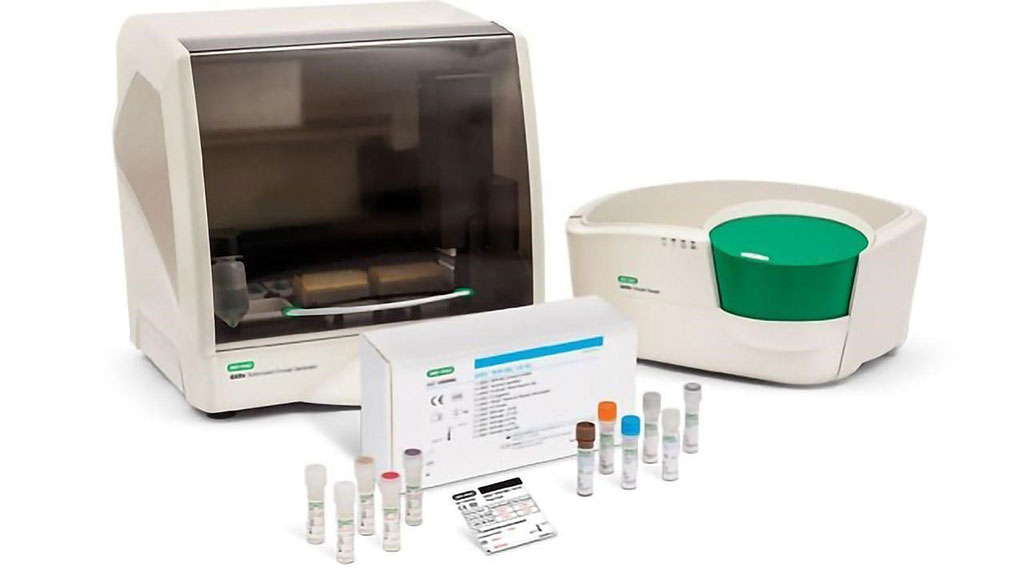ddPCR Developed for BCR-ABL1 Fusion Transcript in B-Lymphoblastic Leukemia
By LabMedica International staff writers
Posted on 12 Jan 2022
Droplet digital polymerase chain reaction (ddPCR) is a novel polymerase chain reaction (PCR) technique reliant on massive sample partitioning to generate individual reaction chambers (droplets) in which individual amplification targets are detected.Posted on 12 Jan 2022
Standardized measurements of BCR-ABL1 p210 translocation by RT-qPCR assays for chronic myelogenous leukemia have proved challenging because of various sources of error including processing of specimens, reference gene selection, the reverse transcriptase reaction, and quantification of transcripts.

Image: QX200 AutoDG ddPCR System and QXDx BCR-ABL %IS Kit (Photo courtesy of Bio-Rad)
Medical Scientists at the University of Minnesota (Minneapolis, MN, USA) obtained clinical samples from specimens from patients who had been previously tested for BCR-ABL1 p190 transcript in the molecular diagnostics laboratory. Samples consisted of both bone marrow and peripheral blood. All samples were stored at −80 °C. The scientists’ aim was to compare results of ddPCR and RT-qPCR BCR-ABL1 fusion transcript measurements of patient samples and determine if either method is superior.
RNA was isolated with the Maxwell RSC simplyRNA Blood Kit and Maxwell RCS instrument (Promega, Madison, WI, USA). The clinical RT-qPCR assay was performed using the TaqMan Reverse Transcription and TaqMan Universal PCR Master Mix (Applied Biosystems, Waltham, MA, USA). Droplet digital PCR was performed using the One-Step RT-ddPCR Advanced Kit for Probes and for automated studies, the QX200 AutoDG system (Bio-Rad Laboratories, Hercules, CA, USA). The PCR was performed in a Bio-Rad C1000 Touch thermal cycler.
The investigators reported that droplet digital polymerase chain reaction was able to detect the BCR-ABL1 p190 transcript to 0.001% (1:10−5) with a calculated limit of detection and limit of quantitation of 4.1 and 5.3 transcripts, respectively. When tested on patient samples, ddPCR was able to identify 20% more positives than a laboratory-developed 2-step RT-qPCR assay. Of the 101 samples measured, 65 samples with a previously positive p190 transcript and sufficient RNA for analysis were further analyzed. Thirty-five of 65 samples (54%) were measured as positive by both methods, and the BCR-ABL1:ABL1 ratio was compared. The majority of samples showed concordant results between the two methods, but several samples demonstrated discordant quantification.
The authors concluded that droplet digital polymerase chain reaction demonstrated increased detection of BCR-ABL1 compared with RT-qPCR. Improved detection of BCR-ABL1 p190 and the potential for improved standardization across multiple laboratories makes ddPCR a suitable method for disease monitoring in patients with acute B-lymphoblastic leukemia. The study was published in the January, 2022 issue of the journal Archives of Pathology and Laboratory Medicine.
Related Links:
University of Minnesota
Promega
Applied Biosystems
Bio-Rad Laboratories













